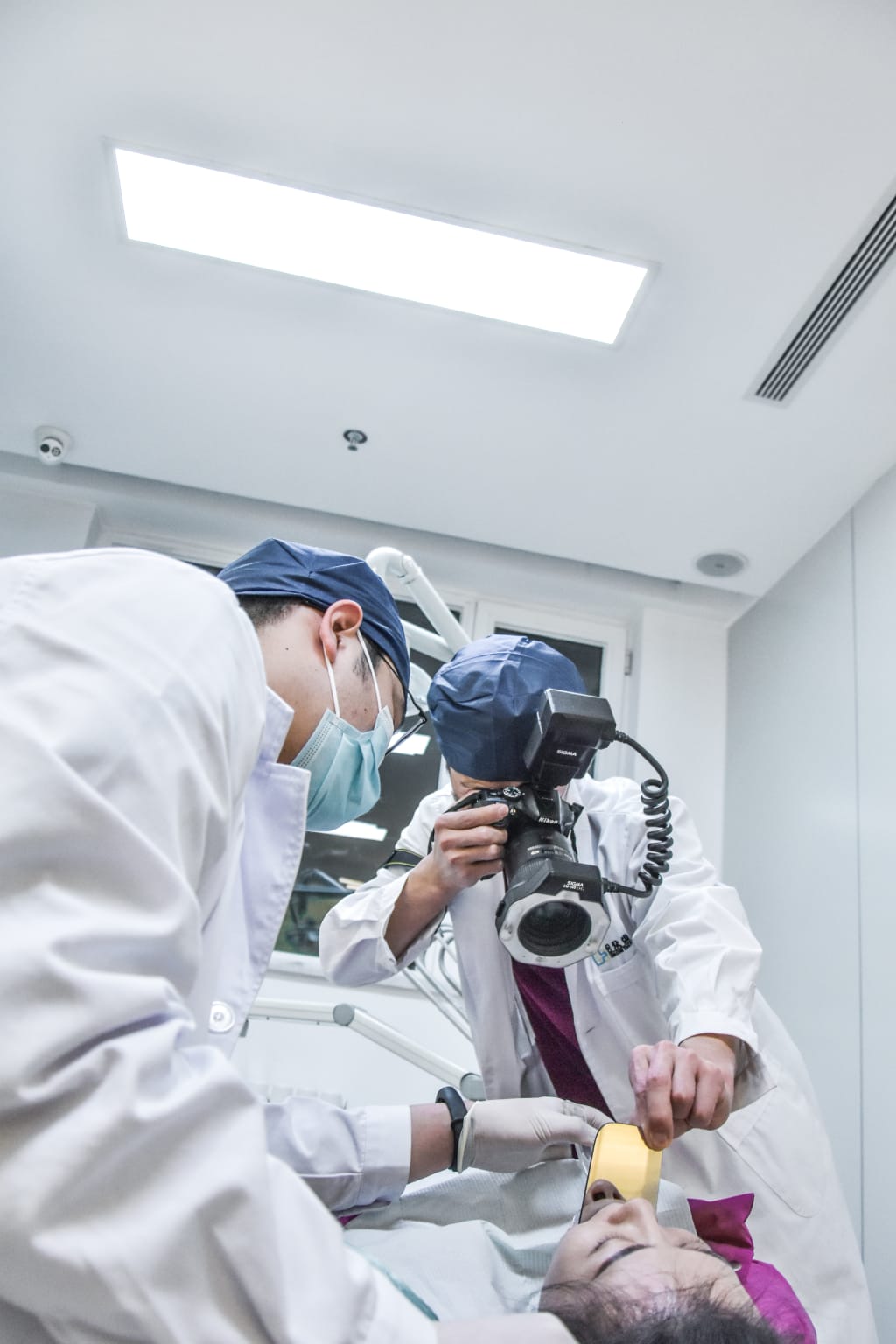The Role of AI in Personalized Medicine and Healthcare.
Revolutionizing Patient Care.

Introduction.
In the realm of healthcare, personalized medicine is emerging as a game-changer, tailoring treatment plans and therapies to individual patients. Artificial intelligence (AI) is playing a pivotal role in driving this transformation, empowering healthcare professionals with advanced tools and insights. This article explores the remarkable impact of AI in personalized medicine and healthcare, highlighting real-life examples that demonstrate its potential to revolutionize patient care. From early disease detection to precision treatment recommendations, AI is poised to enhance medical outcomes, improve efficiency, and inspire breakthroughs in the field of healthcare.
The Power of AI in Personalized Medicine.
AI, with its ability to analyze vast amounts of data and identify complex patterns, is revolutionizing the field of personalized medicine. By leveraging machine learning algorithms and predictive analytics, AI can analyze patient data, including genetic information, medical records, and lifestyle factors, to provide customized treatment plans. This approach holds immense potential in improving diagnostic accuracy, predicting disease progression, and optimizing therapies. AI algorithms can also help identify subtle indicators of disease in medical images and assist in early detection, enabling proactive intervention and better patient outcomes. The integration of AI in personalized medicine empowers healthcare providers to deliver targeted, precise, and patient-centric care.
Real-Life Example: IBM Watson in Oncology.
IBM Watson, a leading AI platform, has made significant strides in personalized medicine, particularly in the field of oncology. Through its cognitive computing capabilities, Watson can analyze vast amounts of medical literature, clinical trials, and patient records to provide treatment recommendations for individual cancer patients. In collaboration with healthcare institutions, Watson has demonstrated its ability to assist oncologists in making informed decisions by synthesizing relevant information and generating personalized treatment options. This real-life example showcases how AI-powered systems like Watson can augment the expertise of healthcare professionals, leading to more precise and effective cancer care.
Enhancing Diagnosis and Treatment.
AI is transforming the diagnostic process by improving accuracy and efficiency. Machine learning algorithms can sift through large datasets, such as medical images, pathology slides, and patient histories, to detect patterns and anomalies that may go unnoticed by human observers. This enables early detection of diseases, including cancer, cardiovascular conditions, and neurological disorders. Moreover, AI can analyze genetic information to identify potential genetic markers for diseases, allowing for personalized treatment strategies. AI algorithms can also optimize treatment plans by considering factors such as drug interactions, genetic variations, and patient preferences, leading to more effective and tailored therapies. By enhancing diagnosis and treatment, AI is empowering healthcare providers to deliver precision medicine and improve patient outcomes.
Real-Life Example: Google's DeepMind in Retinal Disease Detection.
Google's DeepMind, in collaboration with Moorfields Eye Hospital in the UK, has demonstrated the potential of AI in detecting and diagnosing retinal diseases. DeepMind's AI algorithms analyzed thousands of retinal scans and were trained to identify early signs of conditions such as diabetic retinopathy and age-related macular degeneration. The system achieved impressive accuracy in detecting these diseases, surpassing human experts in some cases. This breakthrough showcases how AI can assist healthcare professionals in screening and diagnosing complex conditions, enabling timely interventions and preventing vision loss. The collaboration between AI technologies and healthcare institutions holds great promise for improving patient care.
Transforming Healthcare Delivery and Decision-Making.
AI is reshaping the landscape of healthcare delivery by streamlining processes and supporting decision-making. Chatbots and virtual assistants powered by AI are being used to provide patient support, answer common queries, and triage cases, reducing the burden on healthcare professionals. AI algorithms can analyze electronic health records to identify patterns and provide insights to clinicians, helping them make data-driven decisions and improving treatment outcomes. Additionally, AI-enabled predictive models can forecast disease outbreaks, anticipate resource needs, and optimize healthcare resource allocation. By leveraging AI, healthcare systems can enhance efficiency, reduce costs, and improve patient experiences.
Real-Life Example: Babylon Health's AI-Powered Healthcare App.
Babylon Health, a UK-based digital healthcare company, has developed an AI-powered mobile app that provides personalized healthcare services to users. The app uses natural language processing and machine learning algorithms to assess symptoms, offer health advice, and provide virtual consultations with doctors. By leveraging AI, Babylon Health aims to make healthcare accessible to a wider population, improve health literacy, and reduce the strain on traditional healthcare systems. This real-life example highlights how AI can empower individuals to take control of their health and access medical guidance anytime, anywhere, ultimately enhancing the delivery of healthcare services.
Conclusion.
The integration of AI in personalized medicine and healthcare is reshaping the way patients are diagnosed, treated, and cared for. With its ability to analyze vast amounts of data, identify patterns, and generate actionable insights, AI is revolutionizing healthcare delivery, enhancing diagnostic accuracy, and empowering healthcare professionals. Real-life examples, such as IBM Watson in oncology and DeepMind in retinal disease detection, demonstrate the transformative potential of AI in personalized medicine. As AI continues to evolve and mature, it holds the promise of improving patient outcomes, advancing medical research, and inspiring new frontiers in healthcare.
About the Creator
Ogunwusi Adedapo Kolawole
In a world filled with endless possibilities, it is the brave souls who dare to dream and pursue their passions that leave an indelible mark on the tapestry of life. Meet: Ogunwusi Adedapo, a visionary, a dreamer, and an agent of change.





Comments
There are no comments for this story
Be the first to respond and start the conversation.